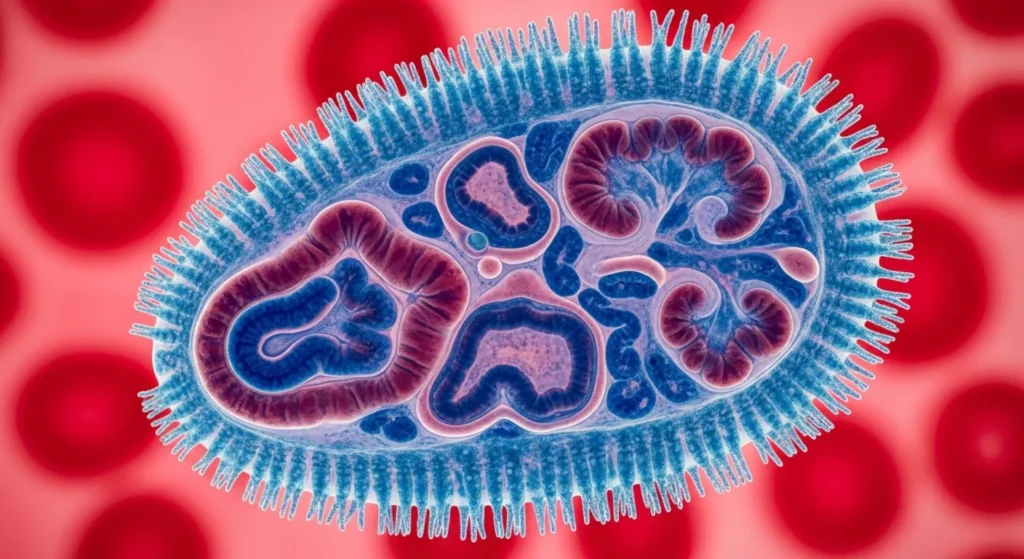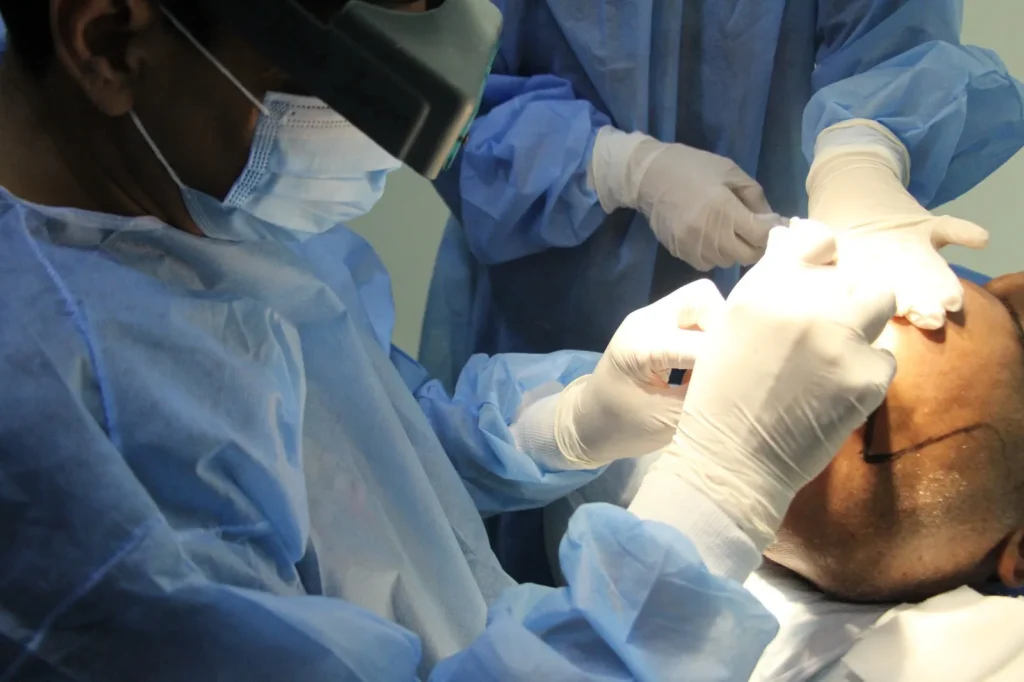Are you experiencing unexpected hair thinning or patchy hair loss with no clear cause? You might be wondering: can parasites cause hair loss?
While commonly overlooked, certain parasitic infections can disrupt your health and even your scalp. In this article, we’ll explore how parasites affect hair health, which types are responsible, and what treatments are available.
Learn how to spot the signs early, recover naturally or medically, and prevent future hair lossbacked by expert insights and real case studies.
What Are Parasites? Understanding the Basics

Parasites are organisms that live in or on a host and feed off it to survive. In humans, they can range from microscopic mites to intestinal worms, often causing subtle yet widespread effects on the body.
Common Types of Parasites in Humans
- Intestinal Parasites: Tapeworms, roundworms, hookworms
- External Parasites: Lice, mites (including Demodex)
- Fungal Parasites: Such as Tinea Capitis, a scalp infection
How Parasites Enter the Body
- Contaminated food or water
- Poor hygiene
- Skin contact or insect bites
- International travel
Parasite Infections and Their Systemic Impact
Parasites can interfere with the immune system, drain nutrients, and cause inflammation. These disruptions may not only make you feel unwell—but may also trigger hair loss in surprising ways.
Can Parasites Really Cause Hair Loss?
Yes, in certain cases, parasites can cause hair loss, either directly or indirectly.
How Parasitic Infections Affect the Scalp and Hair Follicles
Parasites such as Demodex folliculorum can infest hair follicles, triggering inflammation, follicle blockage, and damage.
Autoimmune Responses Triggered by Parasites
Infections can activate immune responses that mistakenly attack hair follicles, leading to alopecia areata-like symptoms.
Nutritional Deficiencies Linked to Parasitic Activity
Intestinal parasites can absorb vital nutrients like:
- Iron
- Zinc
- Vitamin B12
These deficiencies are directly linked to telogen effluvium—a common cause of diffuse hair shedding.
Stress and Inflammation Induced by Parasites
Chronic infections increase cortisol levels and systemic inflammation, both of which are known to disrupt the hair growth cycle.
Specific Parasites Linked to Hair Loss
Demodex Mites and Scalp Conditions
These tiny mites live in hair follicles and sebaceous glands. Overgrowth can lead to:
- Itchy scalp
- Inflammation
- Follicle damage
Hookworms, Tapeworms, and Nutrient Depletion
These internal parasites can lead to malabsorption of protein and iron, essential for hair health.
Fungal Parasites (e.g., Tinea Capitis)
A type of ringworm that causes:
- Circular bald patches
- Scaling
- Fragile hair
Often seen in children, but can affect adults with compromised immunity.
Lice Infestation and Hair Damage
While lice themselves don’t cause hair loss, scratching and inflammation can result in:
- Broken hair shafts
- Secondary infections
- Temporary bald spots
Signs You Might Have a Parasitic Infection
If you’re unsure whether parasites could be behind your hair issues, look for these symptoms:
- Chronic fatigue or brain fog
- Digestive problems (bloating, diarrhea)
- Itchy scalp or body rashes
- Unexplained weight loss
- Patchy or sudden hair loss
- Poor wound healing or immune response
Diagnosis: How to Tell If Parasites Are Causing Your Hair Loss
Medical Evaluation and Scalp Examination
A dermatologist may examine the scalp for:
- Follicle inflammation
- Mite infestations
- Signs of fungal infection
Stool and Blood Tests
Help identify:
- Intestinal worms
- Nutrient levels (iron, vitamin B12)
- Immune responses to parasitic infection
Trichoscopy and Skin Scrapings
Useful for diagnosing:
- Demodex mites
- Tinea infections
- Scalp eczema caused by infestations
When to See a Dermatologist or Parasitologist
See a specialist if:
- Hair loss progresses despite treatment
- You notice circular bald spots
- Other systemic symptoms are present
Treatment Options for Parasite-Related Hair Loss
Anti-Parasitic Medications (Prescription & OTC)
Depending on the type of parasite, doctors may recommend:
- Ivermectin (for mites and worms)
- Albendazole or Mebendazole (for intestinal parasites)
- Antifungals like ketoconazole (for fungal infections)
Natural Remedies and Detox Support
While not substitutes for medical treatment, natural options include:
- Black walnut
- Wormwood
- Clove extract
- Probiotics
Important: Use herbal remedies under professional guidance.
Nutritional Support for Hair Regrowth
Supplement deficiencies caused by parasites:
- Iron and zinc
- B-complex vitamins
- Biotin and protein
Hair Restoration Options After Infection Is Cleared
- PRP therapy
- Minoxidil
- Laser therapy
- FUE hair transplant (for permanent hair loss)

FAQs: Parasites and Hair Loss
Can intestinal worms cause hair loss?
Yes. Worms like hookworms can cause iron and protein deficiencies, which may lead to hair thinning.
Does Demodex cause permanent damage?
Usually no, but prolonged infestations can damage follicles if untreated.
Is parasite hair loss reversible?
Yes, once the infection is treated and nutritional levels are restored, hair typically regrows.
How long does it take to recover hair after treatment?
It may take 2–6 months, depending on the severity of hair loss and treatment compliance.
What are the best parasite cleanses for scalp health?
Medical-grade antiparasitics are the gold standard. Natural cleanses should be supplemental and monitored.
Don’t Let Parasites Ruin Your Hair
Ignoring parasite-related symptoms can lead to long-term damage not just to your scalp, but your overall health. If you’re struggling with unexplained hair loss, it’s worth considering a parasitic root cause and seeking proper evaluation.
Concerned that parasites could be causing your hair issues? Dr. Rana Irfan, ABHRS-certified hair restoration surgeon, offers thorough diagnostics and personalized treatment plans.
